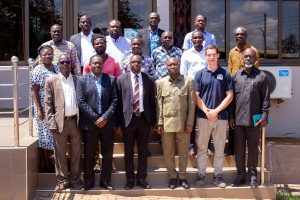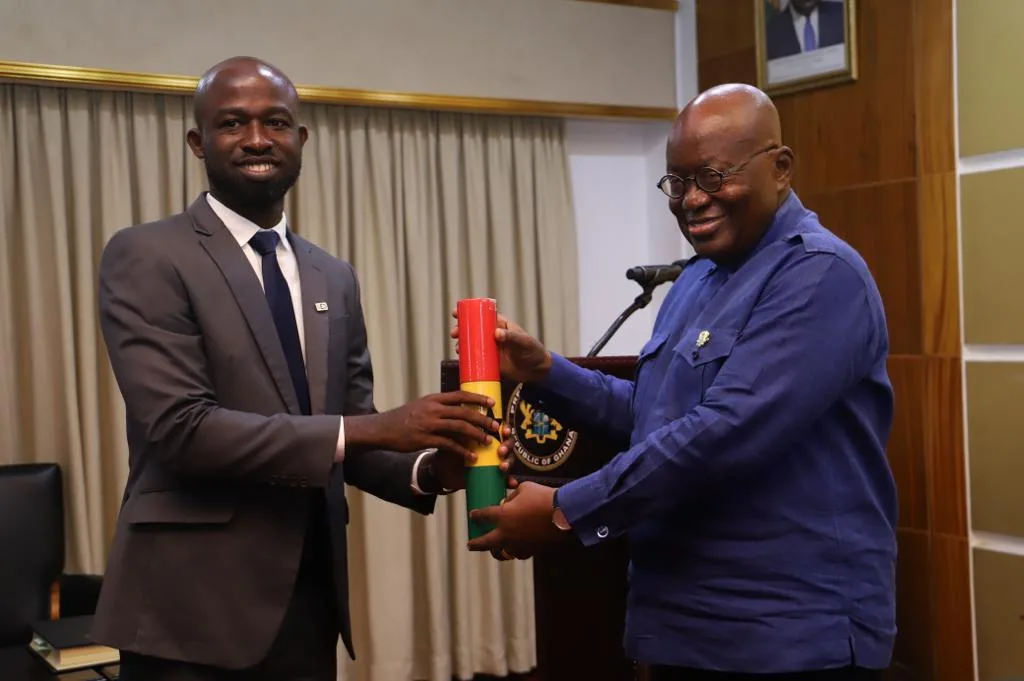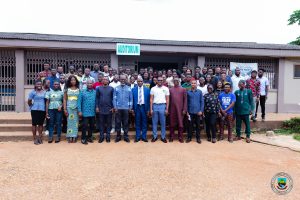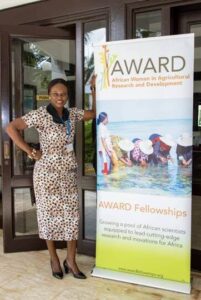
The School of Natural Resources on Tuesday, July 9, 2024 brought together stakeholders within the mining sector, ecotourism, agriculture, fishery, forestry, and academia to discuss ways of managing Ghana’s natural resources.
The maiden research uptake session themed “Managing our Natural Resources: Academia-Industry Partnership for Sustainable National Development”, aimed at sharpening policy formulation while sharing research findings with industry players.
Tackling management issues in natural resource exploitation can be of great value in preventing future environmental degradation, unsustainable resource utilization, and food and water scarcity. Hence, the focus of researchers from the School of Natural Resources in 2023 has led to the publication of over 30 papers in top Scopus journals.

Dr. Jackson Nyantakyi
In his keynote address, Dr. Jackson Nyantakyi, speaking on behalf of Dr. John Kingsley Krugu, the Executive Director of EPA, highlighted the critical findings from the EPA’s 2021 report. The report underscores the significant threat to natural resources posed by various modern developments and projects. It detailed how by-products and toxins from these activities have led to severe environmental health issues. If current practices continue unchecked, these problems are expected to escalate dramatically by 2025.
Dr. Nyantakyi emphasized the EPA’s commitment to collaboration, aiming to ensure that finite resources are managed sustainably for the benefit of both current and future generations. The EPA is poised to work with all stakeholders to implement effective resource management strategies and mitigate the negative environmental impacts of modern development.

Presenting at the event, the Dean for the School of Natural Resources, Prof. Berchie Asiedu disclosed that water and land quality management is a low-cost way to reduce half of future food insecurity. According to Prof. Berchie Asiedu, poor natural resource management is one of the challenges to achieving the Sustainable Development Goals (SDGs) by 2030. He disclosed that this poses a challenge to the balance between water and food supply and demand and causes economic risks to several sectors, including energy, agriculture, households, and industry.
Prof. Asiedu further warned that many Ghanaian households will experience hunger and malnutrition by 2030 due to an anticipated drop in national fish production. He revealed that the nation’s fish consumption is expected to reach 888,096 tonnes by 2030. However, total fish production is anticipated to constitute only about 43 percent of the total fish requirement. A situation he feared could lead to underweight babies. The research findings according to Prof. Berchie Asiedu will be shared with communities that are mostly affected by poor natural resources management.

Prof. Mrs. Mercy Adutwumwaa Derkyi, an Associate Professor in the Department of Forest Science, emphasized the need for greater commitment from both the informal sector and government agencies to effectively address environmental issues. In her presentation on the research paper, “Forest Landscape Restoration and Stakeholders’ Commitment,” Prof. Adutwumwaa highlighted the crucial role that organizations in the forestry sector play. She stressed that while these organizations are performing important work, their efforts could be significantly enhanced through collaboration with the private sector, traditional rulers, and all relevant stakeholders. Prof. Adutwumwaa urged stakeholders to implement bold plans to protect and restore Ghana’s forest cover.
The research uptake session also featured several other insightful presentations:

Dr. Samuel Kumi, a lecturer, and Research and Development Officer of School Natural Resources, presented a paper titled “Drivers and Drags of Speculative Development in a Prospecting Mining Landscape in Ghana.” In his presentation, he identified five main drivers of speculative developments in mining areas: unemployment and poverty, mineral laws and enforcement issues, compensation experience, and lack of knowledge of the consequences of speculation. Dr. Kumi also discussed strategies to mitigate the risks speculation pose to the mining sector.

Ing. Dr. Mary Antwi, a Senior Lecturer and Head of the Center for Climate Change and Gender Studies, presented her findings on the assessment of microplastics, highlighting their impact on the environment.

Dr. Ricky Nutsugbodo, a Senior Lecturer in the Department of Ecotourism, Hospitality, and Tourism, explored the relationship between plastic waste management and the promotion of ecotourism.
These presentations underscored the importance of interdisciplinary approaches and stakeholder collaboration in addressing environmental challenges and promoting sustainable natural resource development in Ghana.







